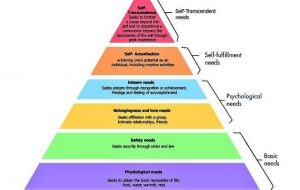Alexithymia
Alexithymia is one of the many psychological disorders that is characterized by preventing people who suffer it from expressing their emotions and feelings, so people who suffer are catalogued as cold, distant and insensitive. For some people it is a mental or neurological disorder, and there are those who claim that it is only a characteristic of the person or a personality trait. The truth is that the inability to show their feelings leads to many problems and frustrations. There are no words of love or hate for alexithimics. The emotional barrier that affects them prevents them from showing their emotions because deep down, they do not understand them either. The disease is an interference in the daily life of the person who suffers because interpersonal relationships are affected.

Related topics
Autism spectrum disorder
What is alexithymia?
Alexithymia is a psychological disorder characterized by the fact that people who suffer from it are not able to show their feelings towards other people, regardless of whether it is love or hate. It is often referred to as a mental or neurological illness which causes people who suffer from it to experience multiple problems in their daily lives.
Diagnosis of alexithymia
Diagnosing alexithymia requires much observation and self-observation of the person being studied. This observation must be made in different daily situations to recognize their own emotions and ensure an accurate diagnosis. It is important to study people looking for the necessary factors to determine the presence of the disease. Some doctors use the Toronto scale to determine the presence of alexithymia, the result of which is considered reliable and valid. It is a more specific instrument and is therefore considered an excellent tool for detecting the absence or presence of signs.
Causes of alexithymia
Apparently, the cause lies in an inadequate connection between cerebral hemispheres. Brain function was usually developed through the corpus callosum. Occasionally, there is a functional or organic rupture of the brain medial commissure that would be responsible for causing alexithymia, since when this happens, it is impossible for the emotions that are recorded by the right hemisphere in right-handed people to be able to present a verbal expression, which is a function located in the left hemisphere. The infantile and juvenile causes of the corpus callosum alteration are due to inheritance or affective deficiencies. Brain injury may occur during the period of intrauterine development, through head trauma, encephalitis or a brain tumor.
Symptoms of alexithymia
The most common symptoms are the following:
- There is a very low capacity for introspection of fantasies, these people usually have almost no inner life and have no dreams or longings.
- They don’t know how to detect or recognize other people’s emotions. They have no empathy with others.
- These people have a serious appearance and apparently, they are always bored.
- They are people who do not speak much and are too practical and rational. Their way of thinking is always oriented towards the external.
- They do not have the capacity to handle feelings, they have many difficulties in creating and maintaining affective bonds with other people, so their interpersonal and social relationships are inadequate or non-existent.
- They are emotionally dependent or isolated.
- They have sexual problems such as loss of desire or impotence.
- Problems expressing themselves verbally or with gestures about their emotions or feelings, they have no fantasies, their capacity for introspection is very low and they have little ability to express themselves.
- His verbal comments are very monotonous, slow, do not have many topics of conversation and are very boring.
Treatment of alexithymia
The main treatment is carried out through interpersonal psychotherapy, which aims to achieve a decrease in personal conflicts present in a significant part of the life of the alexithimics and at the same time, through introspective analysis, looking for ways to improve the emotional awareness restriction (ability to name and express emotions) and improve thinking and imaginary life with the contribution of reflections. In those alexithimics that are more sensitive to psychotherapy, spectacular results can be obtained with a brief comprehensive psychotherapy aimed at stimulating the ability to communicate. Body expression therapy or relaxation techniques, such as non-verbal forms of psychotherapy, can sometimes be helpful.
Examples
They do not recognize that the pressure they feel in their throat is simply a reflection of a need to cry and that the way to get rid of that knot is precisely by crying. They simply go on with the feeling in their throat, which blocks them and limits them while frightening them.
Another example is, when someone wants to buy a car and is not able to decide on the performance of different models, they may choose the one that gives them a more pleasant feeling. For those who suffer from alexithymia will face serious problems to make a decision.
How to cite this article?
Briceño V., Gabriela. (2019). Alexithymia. Recovered on 4 January, 2025, de Euston96: https://www.euston96.com/en/alexithymia/









